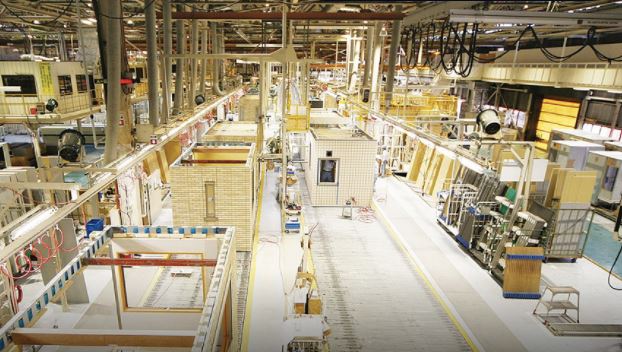In the modular housing industry, where factories promise faster builds, tighter tolerances, and fewer on-site headaches, you’d think sales would come easy. But they don’t. Selling for a modular factory isn’t like hawking shingles or water heaters. It’s complex. The product changes daily. The rules change depending on which state you’re shipping to. And every customer—from a first-time builder to a seasoned developer—comes with a different level of understanding, expectation, and sometimes, suspicion.

So what separates the reps who consistently close deals and build long-term customer relationships from those who burn out, blame the factory, and disappear after a year? It boils down to four traits. And no, they’re not “aggressive,” “outgoing,” or “hungry.” Those might sell used cars. They don’t close $700,000 modular contracts.
Knowing the Product—and the Process
Let’s start with product knowledge, because in modular, you’re not just selling a building—you’re selling a process. And if you don’t understand every part of that process, from CAD drawings and plan approvals to carrier scheduling and crane rigging, you’re going to lose the buyer’s confidence fast.
A good modular rep knows how modules are built, how long they take, what codes they’re stamped to, and how to explain the difference between factory-set expectations and site-completion realities. The best reps know how to head off trouble by educating the client before the build, not after the set. And if you don’t have this knowledge yet? You get it. You walk the production line. You talk to the setup crews. You ask dumb questions in front of smart people. Because in this business, the customer expects you to be smarter than they are about modular—and they’re usually right.
Stop Pitching. Start Consulting.
The second trait is a consultative mindset. This industry attracts dreamers—builders and developers chasing new models, faster timelines, and leaner labor costs. But most don’t understand what modular can and can’t do. That’s where a great rep comes in—not to sell boxes, but to guide decisions.
If you’re a rep who starts the pitch with price per square foot or how fast the factory can crank out houses, you’re already losing. The real value is in listening to what the customer needs and helping them design within modular’s strengths, not around them. It means being the voice of reason when a developer wants to build a 5,000-square-foot cantilevered ski lodge using standard 14-foot modules. It means explaining why some designs are better suited to modular than others—and helping revise them. Reps who ask the right questions win deals. Reps who talk too much lose them.
Following Up Without Getting Lost
Then there’s follow-up. In modular, sales cycles aren’t short. A rep might quote a project in March and not get a deposit until August. Or never. The key is staying visible and helpful without being a pest. The best reps have a system. They follow up with updated pricing, relevant news, revised design tweaks, or just a simple, “Let me know when you’re ready.” They don’t disappear after sending a quote, and they don’t panic when a buyer ghosts them for a month.

Following up is part discipline, part memory, and part intuition. Reps who rely on sticky notes or a thousand unread emails usually fall behind. The ones who follow a rhythm—weekly check-ins, monthly newsletters, even holiday cards—stay in the game. Most importantly, they stay top of mind when the buyer finally makes the decision.
Grace Under Pressure Is a Must
Modular sales reps walk a tightrope. They’re stuck between demanding customers and factories already running behind. At some point, something will go wrong—delays, design changes, cost increases, weather holdups, or a permit office that decides to play hardball. The rep is the one fielding the phone call, and how they respond matters more than they think.
Reps with high emotional intelligence don’t make excuses. They don’t overpromise. They stay calm, provide updates, and keep the customer informed—even when the news isn’t good. That kind of poise builds trust. It’s not easy, and it’s not natural for everyone. But it can be learned. Study your own calls. Ask your factory coordinator or GM what they wish you’d said differently. The best reps improve because they’re willing to admit what they don’t know—and fix it.

Modular Sales Isn’t for the Faint of Heart
Let’s be honest. This industry eats weak reps alive. But it rewards the ones who are willing to evolve. Reps who treat each job like a learning opportunity. Reps who become part of the builder’s team, not just a line item in the budget. Reps who understand that selling modular homes is really about managing expectations, building trust, and navigating chaos with a steady hand.
If you’re missing one of these four traits—don’t panic. You can build them. You just have to want to. Read everything you can. Ask questions. Practice listening. Follow up like it’s your job—because it is. And above all, never stop learning. Because the moment you think you’ve figured it all out in modular, the industry changes again.
And you’ve got to be ready to sell what comes next.
.
With over 9,000 published articles on modular and offsite construction, Gary Fleisher remains one of the most trusted voices in the industry.
.
CLICK HERE to read the latest edition
Contact Gary Fleisher















